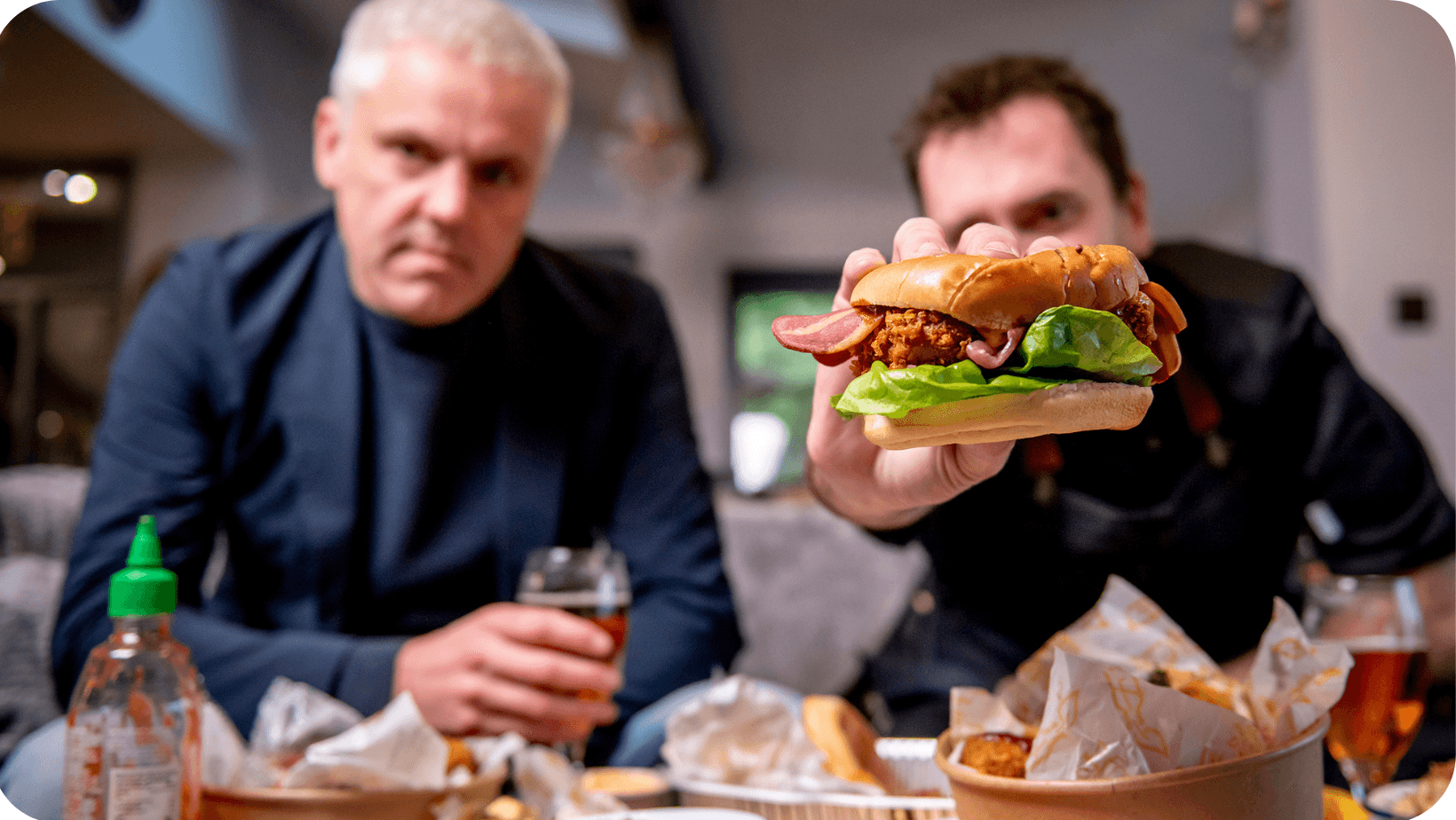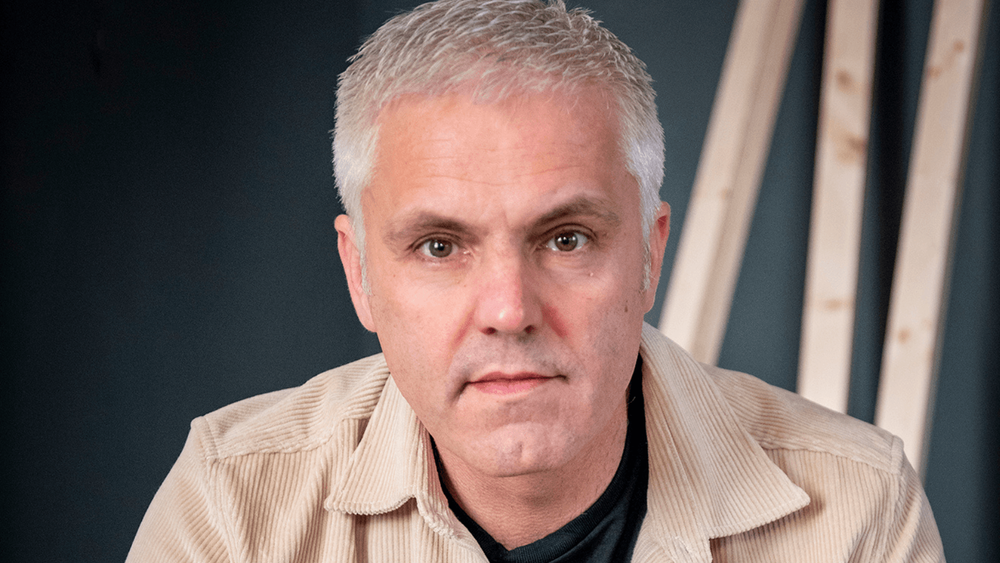In conversation with Matthew Glover: Investing in a vegan future
A vegan world is an ideology many dream of. But is it a foreseeable reality? We sat down with Veganuary Co-Founder Matthew Glover to hear his thoughts.
Matthew is an activist and entrepreneur dedicated to removing animals from the food system. Having co-founded the global phenomenon Veganuary, and then the US-based NGO Million Dollar Vegan, Matthew launched Veg Capital to provide early-stage investment to companies developing vegan meat, dairy, eggs and seafood replacements. More recently, Matthew co-founded VFC chicken, a vegan fried chick*n brand which marries activism with business, and seeks to spare the lives of chickens - the most abused land animals on the planet.
V-Land UK (V-L): Veganism is growing globally, but with prices rising and a potential recession on the horizon, will vegan businesses be hit harder than most?
Mathew Glover (MG): These are certainly challenging times. Many areas of the food system are struggling at present, so it’s difficult to know for sure how it will all pan out. For the plant-based food sector, there seems to be a concerning slowdown in interest in some territories (especially the US), with other areas still seeing growth, albeit from a low baseline.
The cost of living crisis is definitely going to be a major factor, but also there’s pushback from the animal industries as well as society as a whole to alternative proteins. We need to work harder to get across ‘the why’ as well as working harder to create options people want to eat.
V-L: What can vegan business owners do to keep their products on shelves and in stores?
MG: The three main pillars are taste, convenience and price. We need to create better tasting alternatives, at competitive rates and then we have a chance of maintaining or growing our availability in retailers and restaurants.
We also need to appeal to consumers with top-notch marketing, and clear messaging about our purpose and mission. It’s not easy to get all this right, but if vegan businesses wish to succeed then I think these are the vital pillars.
V-L: Any advice for struggling vegan businesses and entrepreneurs trying to find a foothold in the market?
MG: This is such a big question, and not one I can answer easily here. There are going to be some casualties in the coming 12-24 months, and whilst that will be stressful for many founders it may need to happen. Whilst it’s great for consumers that there are increased options, the reality for the start-ups is it’s difficult to compete with so much competition, not least from larger established players.
I guess my main advice would be to try to get enough funding in place, and build a strong team. It’s easier said than done, but I’ve always tried to surround myself with people who are way smarter than me. Work hard, read a lot, network, and be ready to pivot if it’s not working.
V-L: That’s great advice that we’re sure many vegan business owners will implement. What can we expect to see from your most recent business venture, VFC?
MG: We’ve got a version three range of VFC chick*n products coming out soon, with much wider distribution. It’ll be a significant step up in terms of quality, so please keep your eye on VFC’s social media channels for updates.
V-L: Whilst the vegan movement is certainly gaining momentum, for the changes we so desperately need to see in modern-day society, we need these changes to happen quicker. How else can we break through to mainstream consciousness?
MG: I agree. We’re not cutting through fast enough, and this is a big conundrum I agonise over every day. We are making progress, but it’s way too slow. Meat consumption continues to rise, the global population is due to grow by another 2 billion, and we’re facing various environmental issues which directly relate to the exploitation of animals.
Change needs to come from farming. Change needs to come from governments and institutions. Change needs to come from the food industry, retailers and restaurants. Change needs to come from influencers. And, change needs to come from individuals.
I don’t have all the answers, but we’d have a chance with significant funding to create effective diet change initiatives, which move the needle much faster in terms of both policy initiatives and bringing along society for the ride.

Matthew Glover
V-L: A vegan world is something the vegan community hope for, but in reality, compromises will have to be made if we are ever to see a plant-based way of life become a reality. What does a realistic vegan world look like to you?
MG: For me, I don’t think of a ‘vegan world’ but tend to focus on trying to reduce as much suffering as I can as an individual. Expecting everyone on the planet to eat only plant-based foods is unlikely in the near term, and might never happen. Even if all of humanity became vegan, there’d still be wild animal suffering, and human-caused accidental animal deaths.
I think ending factory farming is a realistic goal, and possibly most/all animal farming over the coming centuries. It’s unlikely to happen in our lifetimes, and we may not have enough time with climate change etc, but we should work hard to turn the tide, and build the foundations for future generations to get closer to a compassionate and sustainable relationship with the other species we share this planet with.
A compassionate and sustainable future is something many dream of, and as the vegan movement continues to grow, perhaps that dream just might come true. In the meantime, if you’re wondering how to make a vegan world a closer reality, see how your money can make a difference and how to help nature by letting your grass grow this spring.
